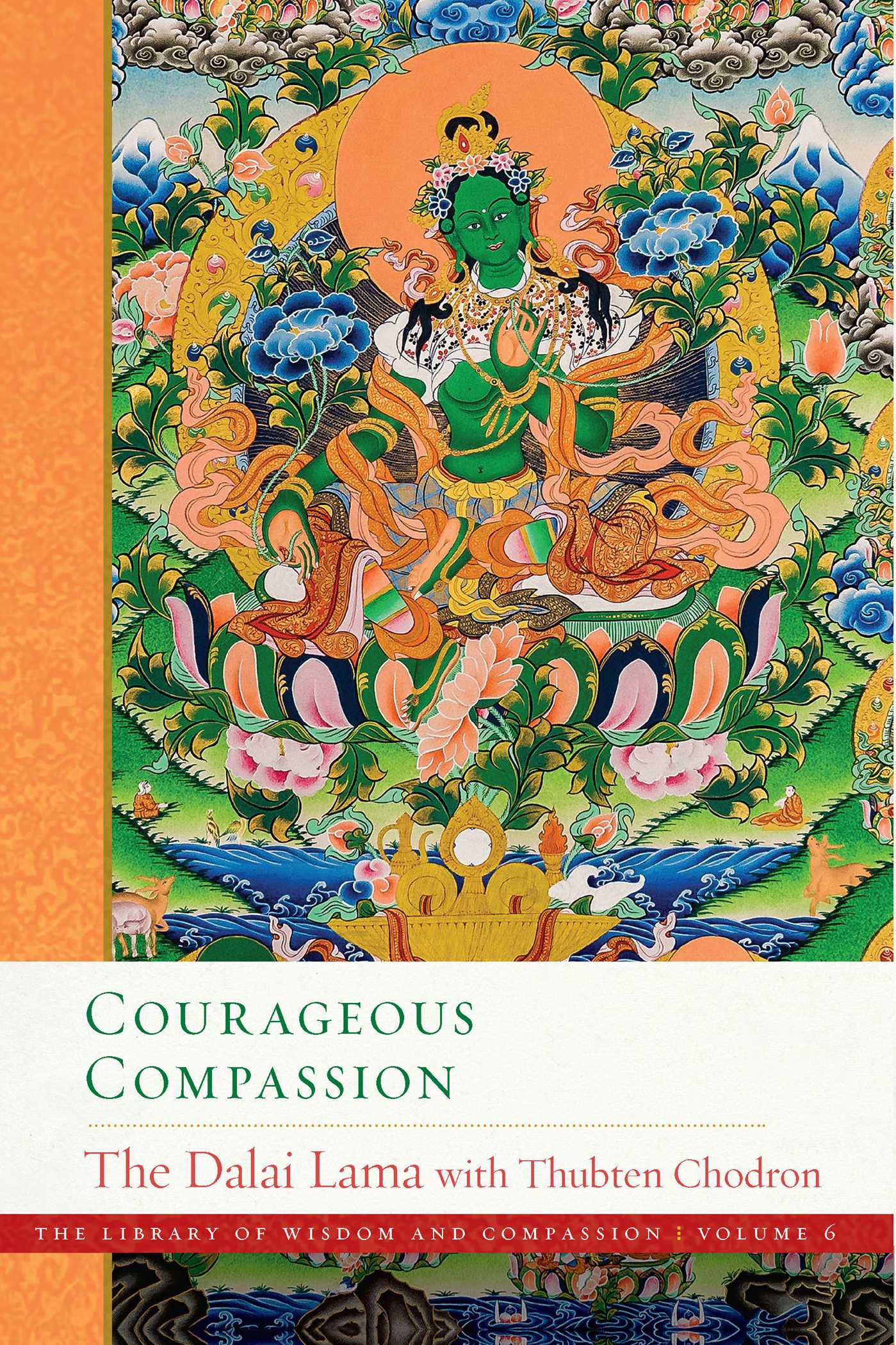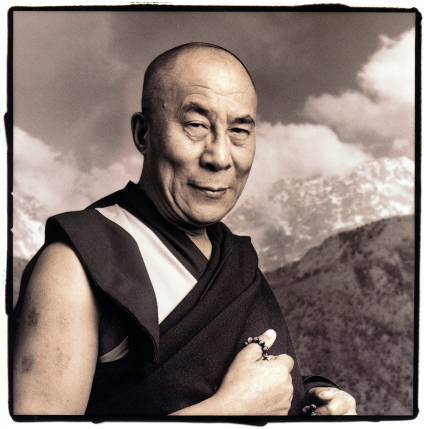
The sixth volume of the Dalai Lama’s definitive Library of Wisdom and Compassion series. Courageous Compassion, the sixth volume of the Library of Wisdom and Compassion series, continues the Dalai Lama’s teachings on the path to awakening. The previous volume, In Praise of Great Compassion, focused on opening our hearts with love and compassion for all living beings, and the present volume explains how to embody compassion and wisdom in our daily lives. Here we enter a fascinating exploration of bodhisattvas’ activities across multiple Buddhist traditions—Tibetan, Theravada, and Chinese Buddhism. After explaining the ten perfections according to the Pali and Sanskrit traditions, the Dalai Lama presents the sophisticated schema of the four paths and fruits for sravakas and solitary realizers and the five paths for bodhisattvas. Learning about the practices mastered by these exalted practitioners inspires us with knowledge of our minds’ potential. His Holiness also describes buddha bodies, what buddhas perceive, and buddhas’ awakening activities. Courageous Compassion offers an in-depth look at bodhicitta, arhatship, and buddhahood that you can continuously refer to as you progress on the path to full awakening.
Author

Jetsun Jamphel Ngawang Lobsang Yeshe Tenzin Gyatso (born Lhamo Döndrub), the 14th Dalai Lama, is a practicing member of the Gelug School of Tibetan Buddhism and is influential as a Nobel Peace Prize laureate, the world's most famous Buddhist monk, and the leader of the exiled Tibetan government in India. Tenzin Gyatso was the fifth of sixteen children born to a farming family. He was proclaimed the tulku (an Enlightened lama who has consciously decided to take rebirth) of the 13th Dalai Lama at the age of two. On 17 November 1950, at the age of 15, he was enthroned as Tibet's ruler. Thus he became Tibet's most important political ruler just one month after the People's Republic of China's invasion of Tibet on 7 October 1950. In 1954, he went to Beijing to attempt peace talks with Mao Zedong and other leaders of the PRC. These talks ultimately failed. After a failed uprising and the collapse of the Tibetan resistance movement in 1959, the Dalai Lama left for India, where he was active in establishing the Central Tibetan Administration (the Tibetan Government in Exile) and in seeking to preserve Tibetan culture and education among the thousands of refugees who accompanied him. Tenzin Gyatso is a charismatic figure and noted public speaker. This Dalai Lama is the first to travel to the West. There, he has helped to spread Buddhism and to promote the concepts of universal responsibility, secular ethics, and religious harmony. He was awarded the Nobel Peace Prize in 1989, honorary Canadian citizenship in 2006, and the United States Congressional Gold Medal on 17 October 2007.